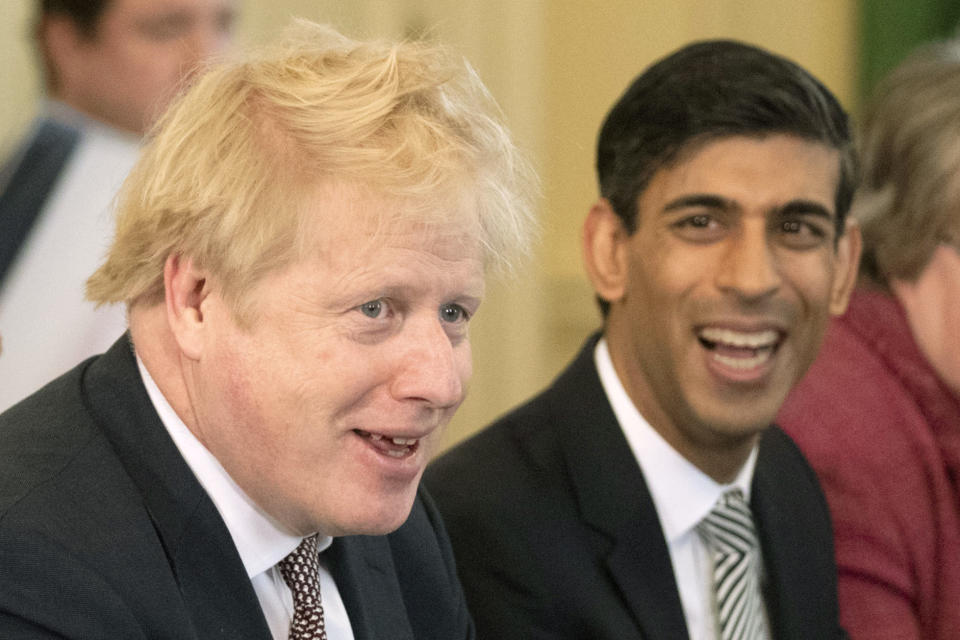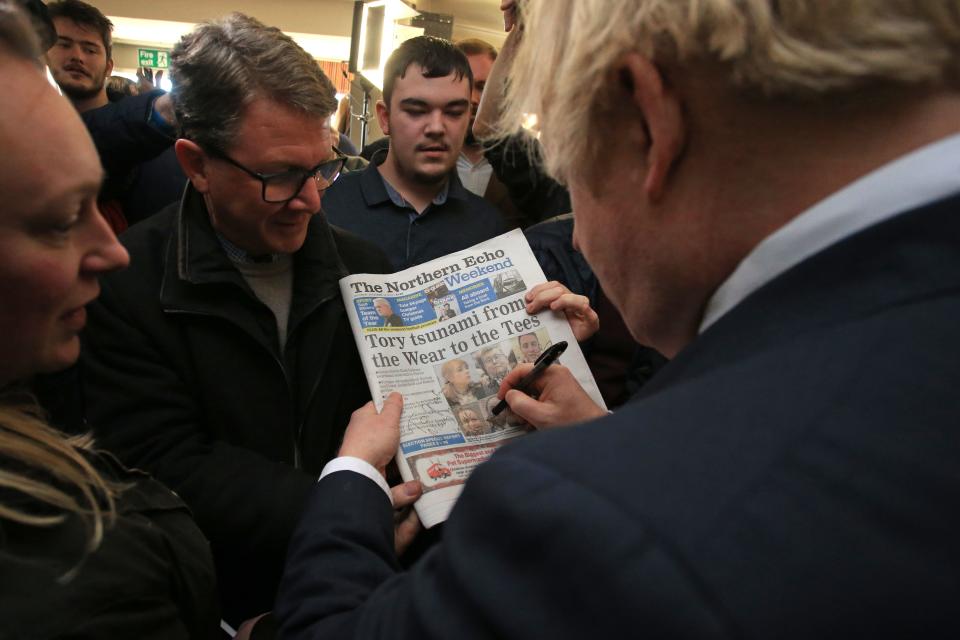UK budget 2020: Chancellor to unveil tax, spending, and coronavirus plans

The government will unveil its plans this week to steer the UK through uncharted territory, with the economy set to be rocked by the coronavirus outbreak and looming Brexit headwinds.
New chancellor Rishi Sunak has a job on his hands safeguarding the fragile recovery in business confidence since the election in his Budget statement on Wednesday.
His first priority will be seeking to limit the virus outbreak’s economic damage as stock markets plummet, consumers stockpile and employers prepare for large-scale absences from work. Trade tensions are also likely to increasingly weigh on the economy this year, as Britain’s smooth Brexit transition period ends in December.
The coronavirus has forced a hasty rethink of tax and spending plans, with reports the government may scale back some of its other domestic priorities. A spending spree to satisfy new Conservative voters outside the South East— and controversial tax rises to help fund them — had previously been the government’s main focus.
Analysts at Nomura still expect an infrastructure boost to help “level up” less well-off areas, but plans for a “big set piece” and major surprise announcements may be shelved.
Steering Britain through the coronavirus outbreak
Falling consumer demand, supply chain disruption and cancelled events are already taking their toll on the UK. Capital Economics has revised down UK growth forecasts from 1% to 0.7% this year, and most analysts expect
It expects the “firm action” promised by Sunak will include an emergency package worth £5bn ($6.5bn) or 0.2% of GDP. The aim is to stimulate the economy, hand struggling firms a lifeline and boost NHS resources to get through the outbreak.
Extra spending and support is predicted for firms left facing cashflow or debt repayment problems and insecure workers forced to self-isolate without sick pay. Analysts at ING suggest the stimulus may underwhelm markets however, pushing the pound down versus the dollar.
Uncertainty over infrastructure blitz for new Tory voters
How far the government dials down its wider agenda in the face of the outbreak will be closely scrutinised.
The Conservatives’ December manifesto promised an infrastructure boom, seen as rewarding newly won seats in the North and Midlands.
Karen Finlayson, a specialist in government at PwC, expects not only “eye-catching” transport, hospital and energy projects, but also smaller giveaways to improve roads, bus routes and high streets. Flood defences will receive a boost.
Up to 1,500 Treasury jobs are likely be moved to north, and its investment rules ripped up to promote more spending outside London.
But uncertainty now hangs over whether the government will go ahead with plans to hike investment to sustained levels not seen since the 1970s, initially estimated at up to £75bn. Nomura analysts expect Sunak to reserve some infrastructure “firepower” for another budget later this year.
Other non-infrastructure announcements are set to include more employment support for bereaved parents, and a pledge to ensure access to cash for all.
Traditional Conservative tax cuts
The government still has a traditional Conservative taste for tax cuts, however. An announcement is likely on business rates, which the manifesto promised to slash.
But plans for a review could mean businesses “wait years for any actual change,” noted Laura Suter, personal finance analyst at AJ Bell.
One radical idea being considered is replacing rates altogether with a new land value tax on landowners. It could help high streets by raising taxes on land used for online rivals’ warehouses.
Workers’ national insurance bills will also fall if a rise in thresholds is confirmed to £9,500, saving them an estimated £85 a year. The government may commit to further hikes to £12,500 within three years, according to Iain McCluskey, a tax partner at PwC.
Johnson’s majority and Treasury “power grab” means he could even dust off his controversial leadership campaign pledge to slash income tax for around 2.5 million high earners. But the manifesto was silent, and Suter dubbed the estimated £8bn annual cost of raising the 40% threshold from £50,000 to £80,000 a “pricey giveaway.”
A less controversial measure will be the abolition of the ‘tampon tax,’ the 5% VAT charged on sanitary products.
Tearing up spending rules

Extra spending means finding extra cash. Downing Street is said to have pressured the Treasury to tear up strict budget rules to fund services through more borrowing.
Yet experts agree the government faced a challenge balancing its books even before the coronavirus threatened growth. Sunak reportedly wants to keep them, and some analysts warn a 16th fiscal target in a decade threatens government credibility.
But interest rates are temptingly low, and the outbreak could give Sunak an excuse to justify rewriting the rules. He did not rule it out in TV interviews on Sunday.
Ruth Gregory of Capital Economics said he may delay balanced-budget targets by another two years, or give himself 1% wiggle room either side.
Controversial tax hikes
Another option is tax hikes, which newly elected governments are often keen to get out of the way early on.
The Treasury is expected to slash tax relief for entrepreneurs selling their firms, which has already sparked a letter from 150 frustrated business leaders. But the relief has been called “expensive, regressive and ineffective” in promoting entrepreneurship by the Resolution Foundation.
A 3% stamp duty surcharge on non-UK buyers, promised in the manifesto, is likely to go ahead.
Other ideas floated include raising fuel duty after years of freezes, raising an estimated £2.4bn. But it sparked backbench anger and a petition in protest, and some now expect the idea to be binned.
A rumoured “mansion tax” and plans to slash pension tax relief for high earners are similarly expected to die a death amid a revolt from backbench MPs.

 Yahoo Finance
Yahoo Finance 